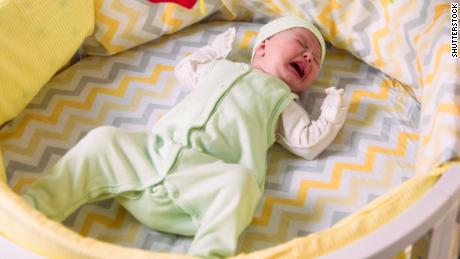A study of 7,155 children in the United Kingdom found that waking up frequently during the night and irregular sleep routines as babies and toddlers was linked to psychotic experiences in children ages 12 and 13. Also, children who slept for shorter periods at night were more likely to be associated with borderline personality disorder at ages 11 and 12.
JAMA Psychiatry, was the first time possible links between early childhood sleep problems and adolescent psychotic experiences and borderline personality disorder (BPD) symptoms have been examined.
“We know from previous research that persistent nightmares in children have been associated with both psychosis and borderline personality disorder,” said lead author Isabel Morales-Munoz, a research fellow at the Institute of Mental Health at the University of Birmingham.
“But nightmares do not tell the whole story. We’ve found that, in fact, a number of behavioral sleep problems in childhood can point towards these problems in adolescence,” she said.
Adolescence, typically defined as the ages between 10 and 19, is a key period in human development because of brain and hormonal changes, and it’s now thought to be when many mental health problems start.
found that babies with persistent severe sleep problems in their first year were at greater risk for anxiety and emotional issues in later childhood.
Sleep problems in children and adolescents have been shown to predict the development of various emotional and behavioral problems, including depression, anxiety, attention-deficit hyperactivity disorder, risk-taking and aggression. However, findings have been inconsistent, especially when based on objective measurements of sleep, rather than parental reports.
Parents shouldn’t worry
Dr. Jenny Radesky, an assistant professor of developmental behavioral pediatrics at Michigan Medicine, said that disturbed sleep in early childhood was a marker of many things, and there wasn’t a clear mechanism by which it could be influencing the risk of these diagnoses, which may sound scary to parents.
She also noted that the study didn’t appear to have properly adjusted for parental mental illness, which, given the genetic underpinnings of mental illness, could explain both why a child had sleep differences in early childhood and why the child is exhibiting mental illness symptoms in adolescence.
“The biggest takeaway for parents is that sleep is part of self-regulation. We need to wake our brains up, and settle them back down. We need to handle fears and separation from our loved ones,” she said. “For this reason, sleep is usually much harder for children with self-regulation problems in early childhood — whether due to anxiety, early ADHD, sensory integration challenges, trauma or lots of other developmental differences that may not rise to the level of a diagnostic label.”
Morales-Munoz agreed that parents struggling with their baby or child’s sleep shouldn’t be overly worried by these findings.
“The advice that I would give to parents is that if they are worrying about their child having some sleep problems, they should consult a specialist,” she said.
“In many cases, these parental worries are indeed part of a normative developmental stage (such as, for example, their child waking up a few times during the night, or having problems falling asleep) but still it would be beneficial to know that, and parents could feel more relaxed; but in other cases, these are indeed part of a developmental problem,” she said via email.
A novel finding
The analysis took into account some factors that could explain the link — such as childhood adversity or whether any sexual abuse had been reported — but did not control for variables such as developmental delay or hyperactivity, prenatal medication or environmental factors.
The study did find that depression at the age of 10 partially explained the associations between these specific sleep problems and psychotic symptoms — but not the association between sleep problems and borderline personality disorder.
“We want to highlight that this is a very novel finding and this has not been reported before, thus there is no previous evidence to support these findings, and further research examining the specific stages of sleep development in childhood are needed,” said Morales-Munoz.
“However, these findings might be explained by the fact that sleep highly varies in early childhood (compared to later stages, such as adolescence and adulthood), and that specific sleep patterns might have different significance and effects at specific stages of the child´s development.”
Adequate sleep in childhood is essential to cognitive and emotional function, the study said. And early sleep problems could be a signal that might increase the vulnerability of adolescents to mental health disorders.
“It’s crucial to identify risk factors that might increase the vulnerability of adolescents to the development of these disorders, identify those at high risk, and deliver effective interventions. This study helps us understand this process, and what the targets might be,” said Steven Marwaha, a professor of psychiatry at the University of Birmingham in the UK and senior author on the study.
“This study helps us understand this process, and what the targets might be.”
Brain development
The data was drawn from the Children of the 90s study, more formally known as the Avon Longitudinal Study of Parents and Children, a health research project in the UK that enrolled more than 14,000 pregnant women in 1991 and 1992.
In the study, sleep behavior was reported by parents when the children were 6, 18 and 30 months, and assessed again at 3.5, 4.8 and 5.8 years old.
The results showed a particular link between infants at 18 months old who tended to wake more frequently at night and who had less regular sleep routines from 6 months old, with psychotic experiences in adolescence.
A shorter nighttime sleep duration and later bedtime at 3.5 years of age were associated with borderline personality disorder symptoms, the study found.



